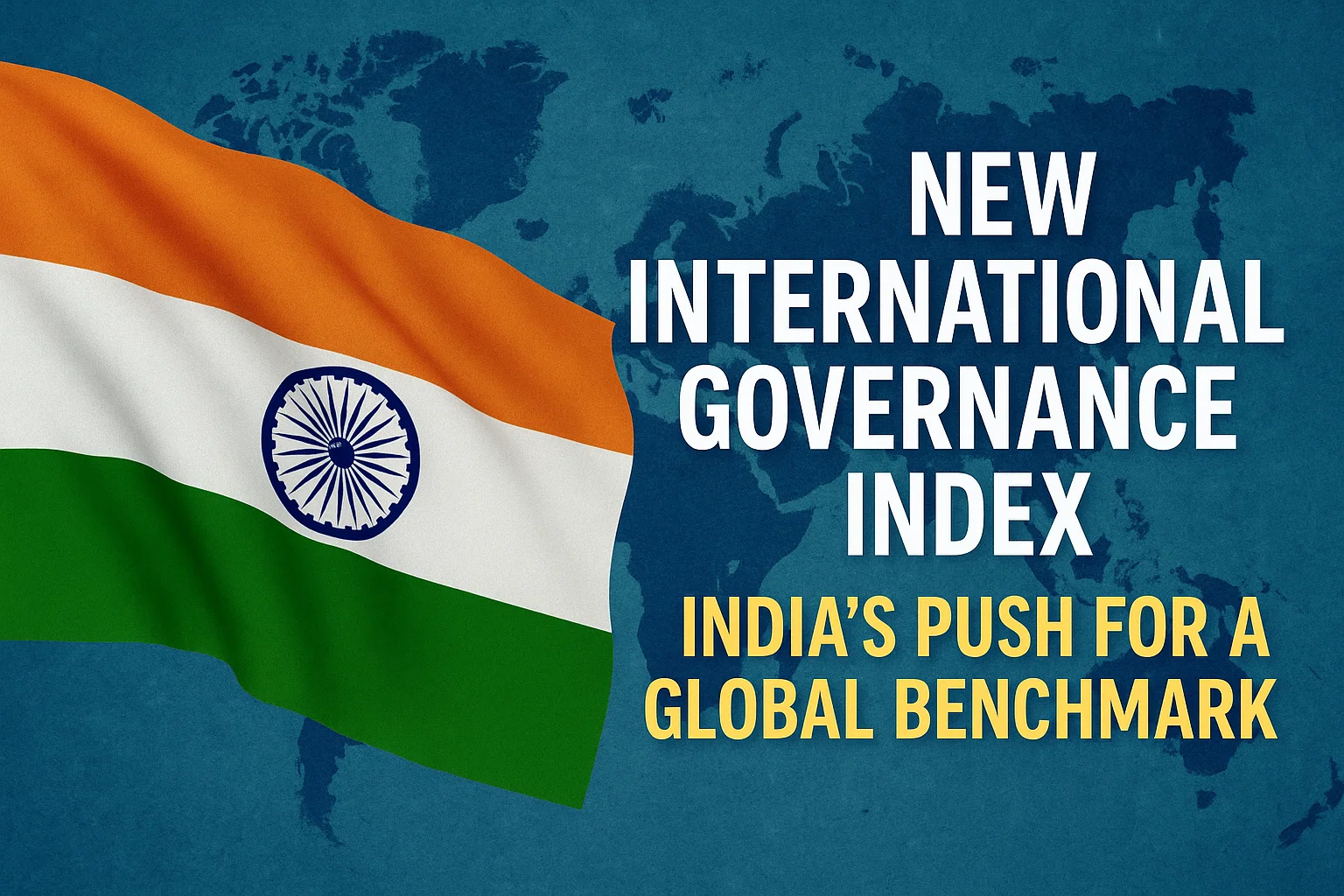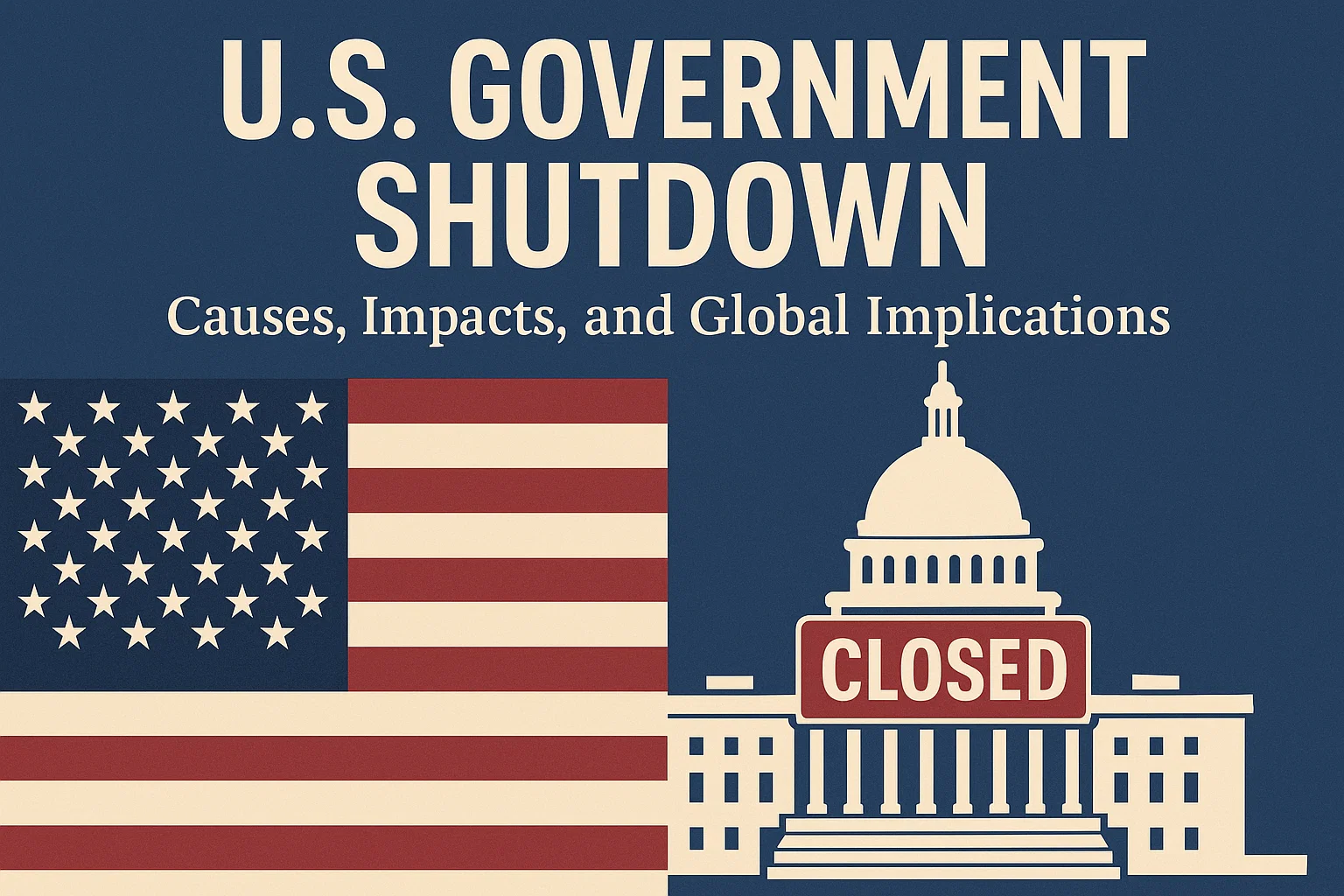New International Governance Index: India’s Push for a Global Benchmark
India, as the new president of IIAS, proposes an International Governance Index to address biases in Western-centric rankings, improve transparency, and provide a context-sensitive framework reflecting realities of the Global South.
Context:
India, leveraging its newly secured presidency of the International Institute of Administrative Sciences (IIAS), has proposed the creation of a new international governance index. The initiative aims to address existing gaps in global governance assessments, particularly the methodological biases of Western-centric indices, while promoting a more inclusive and context-sensitive evaluation framework.
What has India proposed?
India has proposed developing a “New International Governance Index” under the aegis of the International Institute of Administrative Sciences (IIAS). This initiative seeks to build on existing global governance frameworks while collaborating with established institutions such as the World Bank, OECD, and the United Nations Department of Economic and Social Affairs (UN DESA). It aligns with the government’s stated vision of “maximum governance, minimum government” and aims to bridge the “North-South divide” by providing a more representative and equitable assessment of governance across nations.
International Institute of Administrative Sciences (IIAS)
- It is a global non-profit organisation, established in 1930 with HQ in Brussels.
- It works towards academic freedom, the advancement of comparative governance, and the promotion of administrative excellence across nations.
- In June 2025, India won its presidency (2025-2028) for the first time in an election against Austria.
What are the issues in current indices in use?
The Indian government has consistently questioned the methodology of Western-centric indices, such as those by V-Dem and the World Bank, arguing they are subjective and lack contextual understanding. Several concerns have been raised:
Perception-Based and Subjective Methodology: Current indices heavily rely on the subjective assessments of a limited number of Western expert institutions. Critics argue that these organisations often lack on-ground presence, leading to evaluations disconnected from local realities. For example, the V-Dem index reportedly equated India’s governance standards today with the period of the Emergency in the 1970s, a comparison widely disputed by Indian authorities.
Lack of Transparency: The weightage and methodology employed in calculating these indices are not always openly disclosed, raising questions about the credibility and consistency of results.
Monopoly of Western Institutions: The Economic Advisory Council to the Prime Minister (EAC-PM) has highlighted that a few Western institutions dominate global governance ranking processes, potentially skewing perceptions and creating a homogenised view that marginalises experiences of the Global South.
Questionable Results: These indices sometimes produce implausible rankings, leading governments to challenge their relevance and accuracy. The Indian government maintains that existing indices fail to reflect the socio-political and administrative diversity within its states, thereby undermining the validity of global comparisons.
Why is ranking in such indices significant?
Despite methodological concerns, international governance rankings remain highly influential:
Reputational and Soft Power Impact: A country’s ranking in these indices affects its global reputation as a stable, democratic, and well-governed nation. Positive rankings enhance diplomatic standing, while negative results can trigger reputational challenges.
Influence on Credit Ratings: Major credit rating agencies like S&P, Moody’s, and Fitch incorporate governance scores in evaluating sovereign risk. Lower rankings can affect borrowing costs and investor confidence.
Guide for Investors: International investors rely on governance indices to gauge regulatory and political risks, influencing decisions on foreign direct investment (FDI) and long-term business commitments.
Shaping Policy Discourse: Existing indices often dominate academic and policy conversations on governance and democracy. By proposing a new framework, India aims to present alternative models that more accurately reflect realities in developing nations, thereby ensuring diverse perspectives influence global governance standards.
Way Forward
The proposed International Governance Index seeks to overcome the limitations of perception-based assessments by emphasising transparency, objective indicators, and regional representation. Collaborating with global institutions while leveraging India’s presidency at IIAS, the initiative will focus on robust data collection, context-sensitive evaluation, and participatory methodologies.
By institutionalising a more equitable governance measurement system, India aims to provide a credible alternative to Western-centric indices, ensuring that the voices of countries in the Global South are meaningfully represented. The effort could transform the international landscape for governance evaluation, enhancing accountability, credibility, and inclusivity while strengthening India’s role as a thought leader in global administrative sciences.
Subscribe to our Youtube Channel for more Valuable Content – TheStudyias
Download the App to Subscribe to our Courses – Thestudyias
The Source’s Authority and Ownership of the Article is Claimed By THE STUDY IAS BY MANIKANT SINGH





